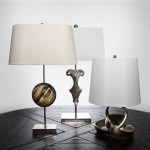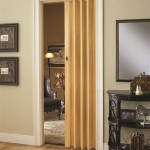Best Interior House Paint: A Guide to Choosing the Right Finish for Your Home
Painting your home is a popular way to refresh and revitalize your living spaces. With so many paint brands and types on the market, choosing the best interior house paint can feel overwhelming. Factors like durability, finish, and color all play a role in making the right decision. Understanding the different types of interior paint and their suitability for various rooms can help ensure a long-lasting and beautiful result.
Types of Interior Paint
Interior house paint is categorized into several types based on their composition and intended use. Each type offers unique advantages and disadvantages:
1. Acrylic Paint
Acrylic paint is a popular choice for interior walls due to its versatility and durability. It is water-based, making it easy to clean up and low in odor. Acrylic paint dries quickly and offers excellent adhesion, making it suitable for different surfaces, including plaster, drywall, and wood. The high pigment concentration results in rich, vibrant colors. Acrylic paint is also washable, making it ideal for high-traffic areas.
2. Latex Paint
Latex paint is another water-based paint commonly used for interior walls. It is known for its breathability, allowing moisture to escape, which helps prevent mold growth. Latex paint is also easy to apply and dries quickly. While it typically has a lower pigment concentration than acrylic paint, it still offers excellent color retention. Latex paint is available in various finishes, from matte to high-gloss.
3. Oil-Based Paint
Oil-based paint is a traditional option that has been widely used for interior walls. It offers excellent durability and resistance to moisture and stains. Oil-based paint dries slower than water-based paints and has a strong odor. It requires mineral spirits for cleaning and is less environmentally friendly than water-based paints. While oil-based paint is still available, acrylic and latex paints have largely superseded it due to their advantages.
Factors to Consider When Choosing Interior Paint
Choosing the right interior paint involves considering various factors, including:
1. Room Usage
Different rooms have different requirements. For instance, high-traffic areas like kitchens and hallways benefit from durable, stain-resistant paint with a washable finish. Bedrooms may require a more calming, softer finish. Consider the room's purpose and the level of wear and tear it is likely to endure.
2. Surface Type
The type of surface you're painting will influence the type of paint you choose. For instance, drywall typically requires a paint with good adhesion, while wood surfaces may need a paint specifically formulated for wood. Consider the surface's texture, condition, and previous paint layers when selecting your paint.
3. Finish
Interior paint finishes range from flat to high-gloss. Flat finishes are good for hiding imperfections and create a softer, more muted look. Matte finishes have a slight sheen and are more durable than flat finishes. Satin and semi-gloss finishes have a higher sheen, offering better moisture resistance and washability, making them suitable for kitchens and bathrooms. High-gloss finishes create a reflective surface that enhances the room's brightness and provides the highest level of durability.
4. Color Selection
Color plays a significant role in setting the mood and atmosphere of a space. Consider the desired ambiance, the room's natural light, and the existing furniture and décor when choosing your paint color. A color consultation with a professional designer can help you select colors that complement your personal style and create a cohesive design.
Key Points to Remember
When choosing the best interior house paint, keep these key points in mind:
1. Prioritize Durability and Performance
Durable paints offer longer-lasting results and resist fading, cracking, and staining. Consider the level of wear and tear the room will experience and choose a paint accordingly.
2. Pay Attention to the Finish
The finish you choose will influence the appearance and durability of your paint job. Consider the room's purpose and choose a finish that meets your functional and aesthetic needs.
3. Consider Environmental Factors
Water-based paints are more environmentally friendly than oil-based paints. They emit fewer volatile organic compounds (VOCs) and are easier to clean up. Look for paints labeled as low-VOC or zero-VOC to minimize environmental impact.
Choosing the best interior house paint is a crucial step in creating a beautiful and functional home. By understanding the different types of paint, considering the room's usage, and paying attention to factors like finish and color, you can make an informed decision that ensures a long-lasting and satisfying result.

The 5 Best Interior Paint Colors For Feeling Refreshed And Relaxed Metzler Home Builders

Choosing The Best Interior Paint Colors For Your Home In Fair Oaks Ranch

2024 Best Interior Paint Colors To Your House Homeadvisor

10 Best Trending 2024 Interior Paint Colors To Inspire Décor Aid

Interior Paint Guide The Home Depot

5 Trending Interior Paint Colors Lowe S

25 Of The Best Paint Colors For Whole House Welsh Design Studio

A Guide To Choose The Best Paint For Interior Walls Berger Blog

Know Which Is The Best Type Of Paint For Interior Walls Berger Blog
Which Paint Is Best For Interior Walls Quora








